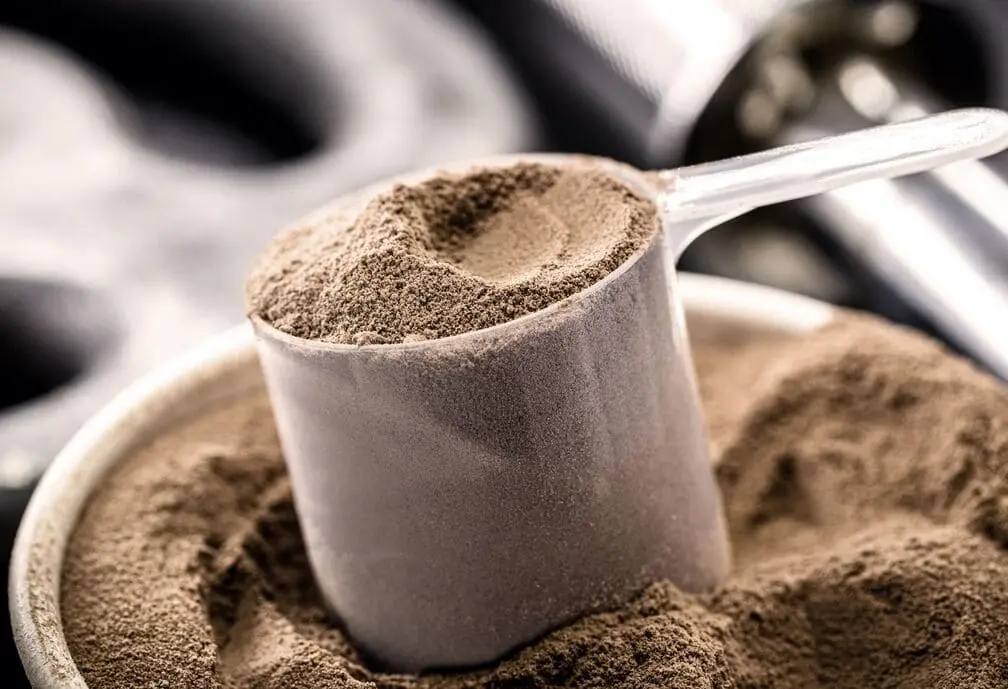Creatine for Vegetarians and Vegans: Why It's Especially Important

April 17, 2024
Creatine is a naturally occurring compound found primarily in animal products, such as meat and fish. It plays a crucial role in energy production during high-intensity exercise, making it a popular supplement among athletes and fitness enthusiasts. However, for vegetarians and vegans, who typically have limited dietary sources of creatine, supplementation becomes even more vital. This blog post will explore the importance of creatine for those following plant-based diets, how it supports performance, recommended dosages, scientific backing, and potential side effects.
What is Creatine and Why It Matters
Creatine is a substance that helps supply energy to cells, particularly muscle cells, during short bursts of intense activity. It is synthesized in the body from amino acids, specifically arginine, glycine, and methionine, and can also be obtained from dietary sources. For athletes, creatine is crucial because it enhances the production of adenosine triphosphate (ATP), the primary energy carrier in the body.
Why is creatine important for vegetarians and vegans? For those who do not consume animal products, the body's creatine stores may be significantly lower. Studies show that vegetarians can have up to 30% lower creatine levels than meat-eaters. This deficiency can affect performance, recovery, and overall fitness results. Supplementing with creatine can help bridge this gap, providing an essential boost in energy during workouts.
How Creatine Supports Performance
Creatine offers several benefits that can enhance athletic performance, especially for vegetarians and vegans:
Increased Energy Production
By increasing the availability of phosphocreatine in muscles, creatine supplementation allows for quicker regeneration of ATP during high-intensity activities. This means athletes can perform at higher intensities for longer periods, leading to improved workout quality and overall performance.
Enhanced Muscle Growth
Creatine is known to promote muscle protein synthesis and increase cell hydration, which can contribute to muscle growth. For vegetarians and vegans who may find it challenging to build muscle due to lower protein intake from plant sources, creatine can be a game-changer.
Improved Recovery
Creatine has been shown to reduce muscle damage and inflammation post-exercise, facilitating quicker recovery times. This is particularly beneficial for athletes who train frequently or at high intensities.
Cognitive Benefits
Emerging research suggests that creatine may also support cognitive function, especially in stressful situations or when mental energy is required, making it valuable for athletes who need to maintain focus and decision-making skills during competition.
Recommended Creatine Dosage for Optimal Benefits
When it comes to creatine supplementation, finding the right dosage is key to maximizing its benefits. Here are some general guidelines for vegetarians and vegans:
Loading Phase
Our Top Recommendations

Optimum Nutrition Micronized Creatine Monohydrate Powder
Micronized for easy mixing, supports muscle growth and endurance.
See on Amazon$0.35 per 5g serving

Nutricost Creatine Monohydrate Micronized Powder
Third-party tested, non-GMO, 5g of pure creatine per serving.
See on Amazon$0.2 per 5g serving

NSF Certified, supports muscle power and recovery.
See on Amazon$0.46 per 5g serving

ProMix Creatine Monohydrate Powder
Micronized, additive-free, ideal for performance and recovery.
See on Amazon$0.36 per 5g serving

NOW Foods Sports Nutrition Unflavored
100% pure creatine, GMP certified, boosts strength and endurance.
See on Amazon$0.2 per 5g serving
Some choose to begin with a loading phase to quickly saturate their muscles with creatine. This typically involves taking 20 grams of creatine daily for 5–7 days, split into four doses throughout the day.
Maintenance Phase
After the loading phase, a maintenance dose of 3–5 grams per day is recommended. This can be taken in one single dose, preferably around workout times, to enhance performance and recovery.
Cycling Creatine
While some users choose to cycle on and off creatine, research shows that continuous use is safe and effective for most people. However, it’s advisable to take breaks if gastrointestinal discomfort or other side effects occur.
Scientific Studies Supporting Creatine for Vegetarians and Vegans
Numerous studies support the efficacy of creatine supplementation, especially among individuals with low baseline levels, such as vegetarians and vegans.
- Creatine Supplementation and Muscle Mass: A study published in the Journal of Sports Nutrition found that creatine supplementation significantly increased muscle mass in vegetarians compared to those not supplementing.
- Performance Enhancements: Research in the International Journal of Sports Nutrition and Exercise Metabolism demonstrated that creatine supplementation improved performance in vegetarians during high-intensity interval training compared to a placebo.
- Recovery Benefits: A review in the Journal of Strength and Conditioning Research highlighted creatine's role in reducing muscle soreness and improving recovery times in athletes, emphasizing its benefits for individuals engaging in frequent, intense training.
These studies illustrate that creatine supplementation can provide significant advantages for vegetarians and vegans, addressing their unique nutritional needs.
Side Effects of Creatine
Creatine is generally considered safe for most people when used at recommended dosages. However, some individuals may experience mild side effects, including:
- Gastrointestinal Issues: Some users report stomach cramps, diarrhea, or nausea, particularly during the loading phase. Taking creatine with food or spreading out doses can help mitigate these effects.
- Water Retention: Creatine can cause the muscles to retain water, leading to temporary weight gain. This is usually not harmful but can be a concern for athletes competing in weight-sensitive sports.
- Kidney Concerns: There have been concerns about creatine's impact on kidney function. However, studies have shown that creatine is safe for healthy individuals. Those with pre-existing kidney issues should consult a healthcare professional before starting supplementation.
For vegetarians and vegans, creatine supplementation is not just beneficial; it is often essential for achieving optimal athletic performance and muscle development. By understanding the importance of creatine and how it can enhance energy production, muscle growth, and recovery, individuals can make informed choices about their supplementation.
If you’re ready to enhance your performance, consider incorporating creatine into your regimen. Always consult with a healthcare professional before starting any new supplement, and explore related content on optimizing your plant-based diet for athletic success. Subscribe to our newsletter for more insights on health and fitness tailored for your lifestyle!






